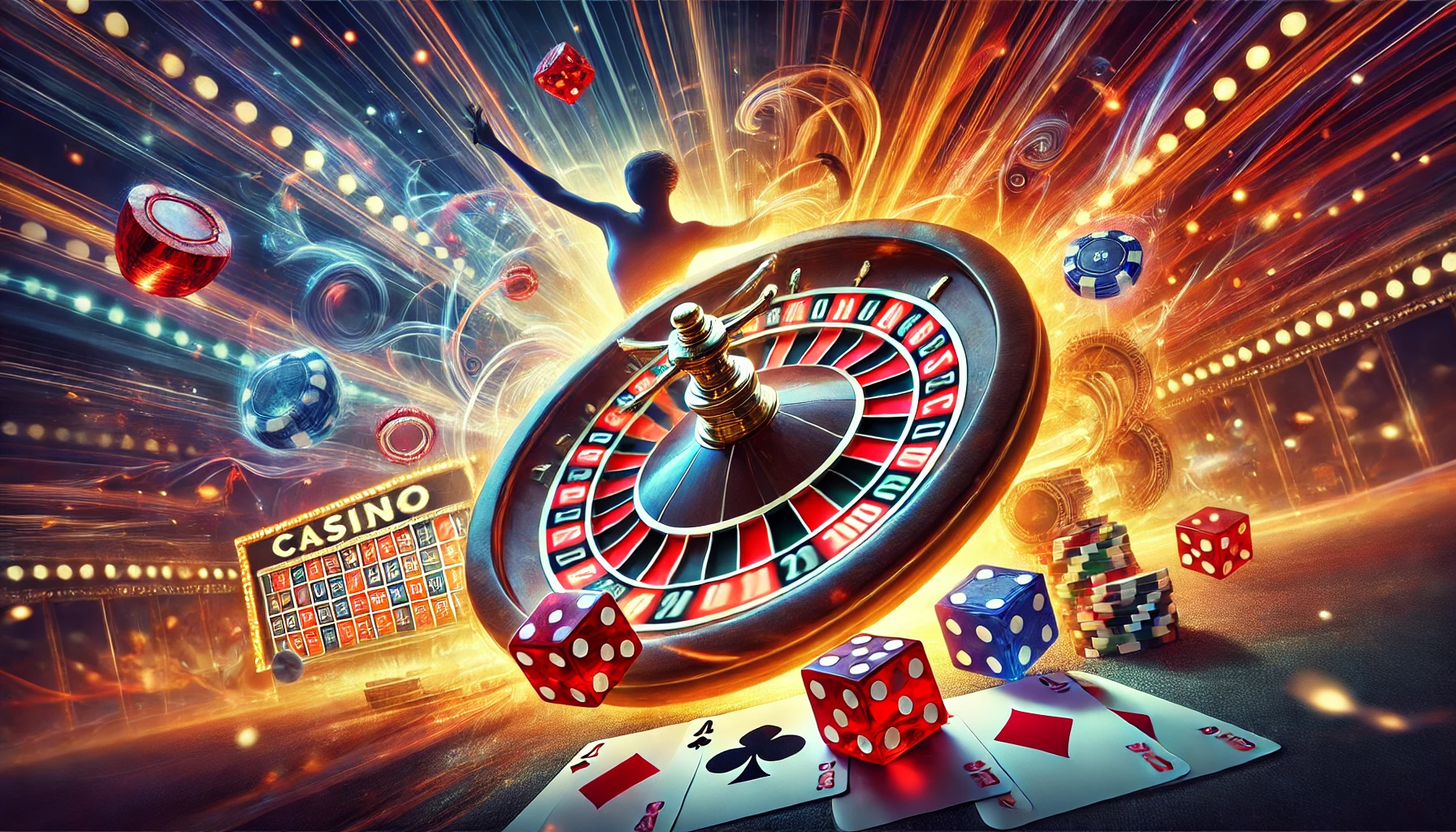As online gambling became mainstream, the social element of gambling has become increasingly prevalent. Gambling has always had some social effects, dating back to ancient games. With the rise of social media and gambling marketing, this social pressure has increased exponentially.
Some may feel obliged to sign up to online casinos, simply because everyone else seems to be using them. Social media influencers on TikTok, Twitter or Instagram may also play a part in pressuring people to gamble. Peer pressure is extremely dangerous when mixed with gambling, as it does not promote a realistic image of how gambling works. After suffering big losses or pumping in more money than they can afford to lose, those players will blame the peer pressure and anyone who encouraged them to join.
The elderly, youth and certain demographics are considered more vulnerable to gambling addiction. But your gaming doesn't need to end in a slump of losses and frustration. With the proper outlook, you can enjoy your gaming and possibly even use it to make a tidy profit.
How Peer Pressure Can Influence You to Gamble
Your peers may pressure you to join a casino or sportsbook without knowing they are. Boasting big wins and how easy it is to make money is the easiest way to catch a newcomer's attention, especially if they have never tried any of the specific games or bets before. It starts with a spark of curiosity, which then quickly becomes a determination to find out how this peer seemingly makes money out of thin air.
It could also be a fear or missing out on the action. All your friends are signed up to a sports betting site, and last weekend they all won. You missed last week's big splash, but you feel tempted to join a sportsbook to cash in on the following week's action. While there is nothing wrong in doing so, it is important to curb your expectations and to always bear in mind that gambling has its risks.
How Advertising Pressurises Players
Even in countries where gambling is legal and governed, there are strict rules about how operators can market their products. They cannot simply show off their latest games, betting features, or hottest bonuses without giving viewers proper disclaimers about the risks of gambling. UK Gambling laws on marketing were found to be the most lenient in a recent study, despite the tight legislation on gambling.
In the US and Canada, laws on gambling marketing are austere and focus on blocking the ads from young people who are at a higher risk of gambling harm. There are numerous arguments for restricting, or even outright banning, casino and sports betting marketing. Namely, it can target specific demographics and attempt to normalize gambling in certain groups of people. They may also not convey the dangers or harms of gambling in their message.
However, gambling is not the only industry that comes under heavy fire on the subject of marketing. The finger can also be pointed at the alcoholic beverage industry, or even at pharmaceutical companies who are trying to offload their products onto the public. It is a delicate subject matter, but the main goal is not to withhold people from casino games or sports bets. But rather to inform them of the dangers, and make sure they understand them before spending any money.

Social Validation and the Power of Group Dynamics
Betting on sports with friends or playing at live tables with your peers can certainly enhance the gaming experience. It can also downplay the element of risk involved in each wager, and distract you from the fundamental principles of gambling. Wins will feel bigger and more important, giving you bragging rights among your peers. Losses, on the other hand, are dismissed or belittled. These are consequences of the group dynamic. Groups tend to applaud wins and not really focus on the losses. It becomes a game of who can pull off the biggest win, or who can make the longest winning streak.
Playing solo does not have the same pressures or priorities. Individual bettors or players are more focused on their betting tactics and can apply their own strategies to turn a profit. For example, a hedge bettor will take a 1-3% profit on their stake, and patiently build their bankroll. The fact that this would only be 3 cents to every dollar wagered does not excite anyone gaming in a group. Winning a dollar from 3 cents (odds of 33.3 or +3230 in American odds) gives more social validation.
Attempting to Hit Big Wins
A roulette player may use an expert strategy to master the 1:1 wagers and build their bankroll slowly. They know that the house has an edge of 2.7% in European or French Roulette, and have a solid plan to test their luck. Specifically, a sound budget that allows them to play for a long period of time, in the hope that they will run into a winning streak, and call it quits while they are ahead.
This doesn't work when we add in peer pressure, as players feel compelled to push for dramatic wins. We want to impress our peers, and the temptation to go for longshot odds on straight bets (35:1) or bet large sums of money outweighs the pragmatic approach. In groups, players may go bust quicker when betting so aggressively. Or, they may win lots of money very quickly, but then lose it because they didn't quit in time. As soon as the player starts losing some of their newly won money, they want to climb back to the peak and will pump in their remaining funds until they inevitably lose it all. This is the sunk cost fallacy when gamers feel like they cannot stop playing.
Trying to Emulate the Luck of Others
When one player in a group pulls off a big win and collects heaps of money, it can lead the others to believe they may be next. There are lots of cognitive biases associated with this group dynamic, all of which you should steer clear of.
You may feel like your sports betting friend who won big will do it again next weekend. Or that if they could pull it off with their knowledge of sports, then surely you can also make ends meet. But there are so many variants that can come into play, and oddsmakers know what they are doing when they provide sports bets.

Biases in Sports Betting
For example, in sports betting you may look to build a parlay and pick all the favorites in 5 NFL games. That is, 5 favorites, A, B, C, D and E (let's assume at the same odds), in 5 games. The odds on each team are 1.5, or -400, which means the implied probability for each to win their respective game is 80%. When combining the selections on your betslip, the numbers look a little like this.
- A+B = Odds of 1.563 (-178), Implied Probability of 64%
- A+B+C = Odds of 1.953 (-105), Implied Probability of 51.2%
- A+B+C+D = Odds of 2.441 (+144), Implied Probability of 41%
- A+B+C+D+E = Odds of 3.052 (+105), Implied Probability of 32.8%
If you were to pick three teams at odds of 1.953 (-105), you could win $19.53 on a $10 bet, and going on the implied probability alone, your chances of winning are just over 50%. When adding 2 more favorites to your bet slip, your chances shrink to less than 1/3, though you would win $30.52 on a mere $10.
They may all be favorites to win, but the chances that ALL of them will win are small.
How Peer Pressure Can Lead to Addiction
We have seen how tempting it is to join a sportsbook or casino because of peer pressure. Now, we have to look at how that pressure can lead to gambling addiction. Gambling peer pressure commonly starts in the teenage years. Before that, most people are exposed to gambling through their parents or extended family.
In those teenage years, the desire to play is fuelled by social media exposure and advertising. Once teenagers become young adults in their early 20s, getting their first jobs and disposable income, they may feel inclined to explore gambling further. Their peer groups will have matured too, and they will move on from generic gambling ventures such as scratchcards, fruities and lottery cards to casino games and sports betting.
During their formative 20s, young adults may be enticed by the promise of “quick money”. Especially with peers who show off their wins, enforcing the image of gambling as a novelty rather than a real risk. Gambling addiction is not something that happens overnight, and there are definitely groups of people who are more vulnerable than others. People who already have addictions are in that higher risk bracket. Whether it is smoking, drinking, or even activities such as sports, shopping or traveling.
The UKGC surveyed the gambling journeys of young people and found curious results on group gambling. They found that over 50% of the gambling done by youths is with peers. 58% of non-problem gamblers played with their friends. A number that jumped up to 74% and 77% among the moderate-risk and problem gamblers.

Peer Support Instead of Peer Pressure
The responsibility to educate people about gambling does not fall solely on the government's or operator's hands. It is something that anyone can participate in, helping others understand the risks and dangers of excessive gambling. Early intervention programs, educational group discussions, and counseling services are all available in countries that regulate online and landbased gambling.
Players who join licensed online casinos or sportsbooks can reach out to the support team or gambling harm prevention organizations. All licensed operators must work with some of the following institutions, and they must provide responsible gambling tools to ensure players have full control over their spending.
How to Gamble Responsibly
The first step to gambling safely is to take full control of your finances. This is easy to do at online gambling platforms, as you will have a myriad of tools to help. When creating an account, you must also set a deposit limit for your daily, weekly or monthly spending. This ensures you never make any reckless decisions or put too much money into your account. While you are not necessarily going to lose it, this is money that you are going to risk, so therefore keep realistic expectations.
Also, you should make a reality check, to stay informed on how long you have been playing. This is key to staying focused, as it is easy to zone out and lose track of time. By setting reality checks, you can also learn when to quit while you are ahead. And not chase any prior losses or play to the point you go bust.
Win and loss markers and gambling self-assessments are other useful tools that you can use to manage your gambling. If you ever feel like you need advice, you can always reach out to the customer support team. Alternatively, contact any of the gambling harm prevention services we have listed above. And remember, gambling should always be for fun, it is not a financial institution or investment that can promise anything.

 5 days ago
59
5 days ago
59







![Anime Reborn Units Tier List [RELEASE] (November 2024)](https://www.destructoid.com/wp-content/uploads/2024/11/anime-reborn-units-tier-list.jpg)
